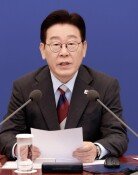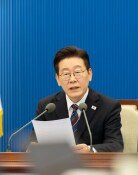Cronyism in the Finance Sector
Controversy has risen in domestic finance over the appointments of top managers at banks and other financial institutions. Many of the appointments have been swayed by government influence due to the absence of controlling private shareholders. In many cases, financial institutions voluntarily filled their top posts with people favored by those in power.
In the past, close confidants of presidents rose to plum positions in the financial industry. Under the Chun Doo-hwan and Roh Tae-woo administrations, Lee Won-jo, a common friend of the two presidents, exercised influence so enormous that he was called emperor of the financial industry. Under the Kim Dae-jung administration, Lee Hyung-taek, a nephew of the presidents wife, held sway over the sector.
Under the incumbent Lee Myung-bak administration, people who went to the same university and high school with President Lee are rapidly moving up the ranks. Euh Yoon-dae, chairman of the Presidential Council on Nation Branding who has been appointed to head the KB Financial Group, was two years behind President Lee when they studied business administration at Korea University. Kim Seung-yu, chairman of Hana Financial Group, was in the same university class as the president, while Woori Financial Group Chairman Lee Pal-seung also attended the school. Among the CEOs of the country`s four largest financial groups, three are Korea University graduates and considered close confidants of the president. In addition, the chairman of the National Agricultural Cooperative Federation and the president of Shinhan Investment Corp. are also exercising great influence in no small part because they are alumni of Dongji Commercial High School, which President Lee attended. Many, including those who believe they were unfairly treated because of favoritism, call such appointments a league of their own.
These executives and the government could have their own explanations on the appointments. Certain figures have proven professional ability to run a financial institution. The Hana chairman was successful before President Lee was elected. Financial companies can also prefer those with connections with the president for strategic reasons rather than government influence. Those who faced criticism for far more serious offenses of favoritism when they were in power now complain about bias against them or exaggerate the situation.
In Korean society, favoritism by school or regional connections is often a powder keg in personnel affairs. Resentment caused by personnel appointments because of these factors and not based on competence and ability could result in an uncontrollable ripple effect. The president and his aides should pay particular heed to such risks. The president`s friends in highly coveted posts must maintain their integrity to avoid causing trouble for their alma maters or the president. They should learn from the examples set by Lee Won-jo and Lee Hyung-taek, both of whom ended up in prison after being convicted of irregularities.
Editorial Writer Kwon Sun-hwal (shkwon@donga.com)





![아침 공복 따뜻한 물 한 잔, 정말 살 빠지고 해독될까?[건강팩트체크]](https://dimg.donga.com/c/138/175/90/1/wps/NEWS/IMAGE/2026/03/05/133467930.3.jpg)

